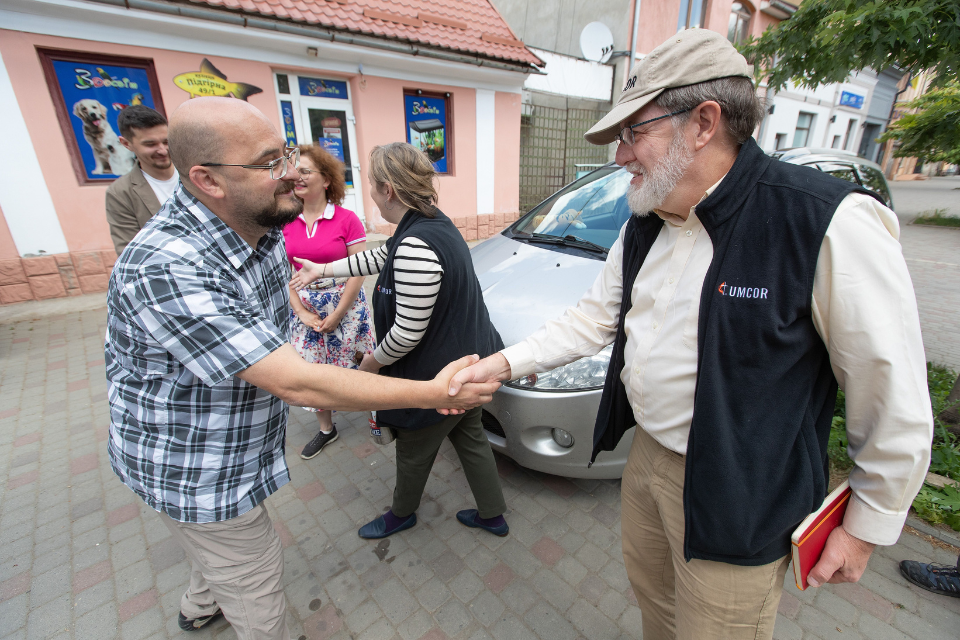Jack Amick, Michigan pastor and head of UMCOR’s work in Global Migration, emphasizes the transformative power that changes hearts and minds through personal connections.
KAY DEMOSS
Michigan Conference Communications
The Rev. Jack Amick grew up in Ann Arbor, Michigan. “My eyes were opened to the world as a child in Dixboro United Methodist Church,” he recalls. Amick remembers Dixboro’s “farm widows, who ministered with healing by potluck and casseroles.” And there were “professors and folks from the University of Michigan who led Bible studies with participants seeking understanding in radical, non-binary ways.” In addition, he “heard people who traveled around the world and who shared slideshows about international things.” Amick’s mother “would drive halfway up the state and meet Pastor John with Christmas packages” for Kewadin Indian Mission UMC. Amick says all that “imbued me with a sense of mission at a very early age.”
The Dixboro experience — “old-school mission full of relationship” — was great preparation for his future role as director of Global Migration for the United Methodist Committee on Relief (UMCOR). Jack left the Detroit Conference in 2013 to begin his ministry with UMCOR. He remains “proud to be connected with Michigan,” a conference that is “way forward” in its support of the work of the General Board of Global Ministries (GBGM).
Roots in Global Migration
Amick began his UMCOR sojourn in disaster response and development programs. Today, his focus is migration. “It’s something we’ve been doing since we started,” he observes.
In 1940, General Conference created a new organization for relief work among war refugees in Asia and Europe. The Methodist Committee on Overseas Relief was born, now known as UMCOR. Early on, UMCOR was concerned primarily with the plight of war refugees and migrants, especially those impacted by World War II.
Amick reflects, “Working with displaced people has been something we’ve been doing since day one and has remained part of our core.” There was a time, however, when the ethos was more about disaster response. Amick continues, “But the underlying current for migrants was revived after the Syrian refugee movement in 2015.” Since then, Amick has provided leadership for grant writing, training, and global conversations in forums such as the United Nations.
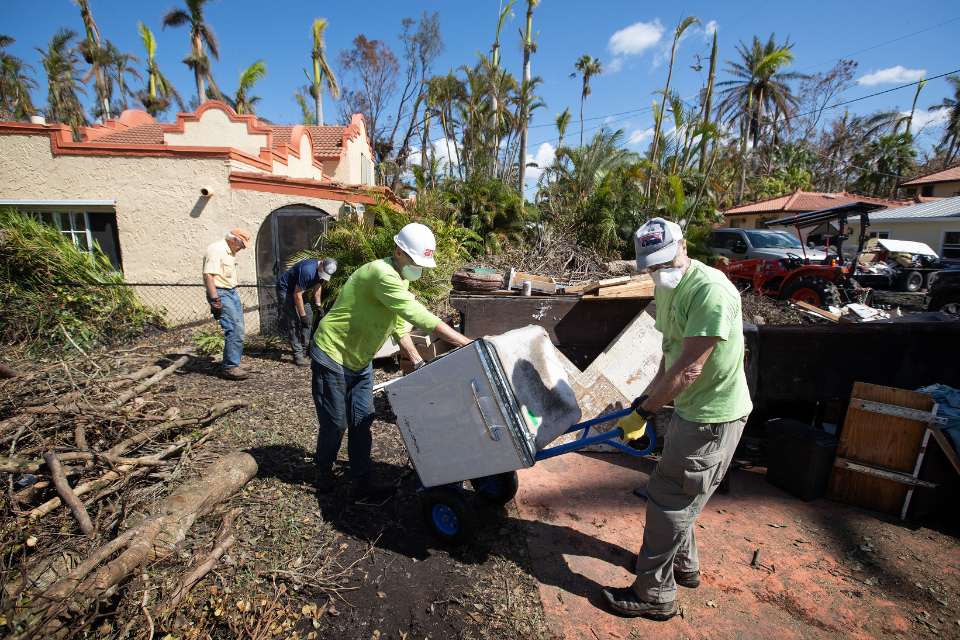
Amick highlights programs familiar to Michigan United Methodists. “We have done a lot with Immigration Law and Justice Network” (formerly Justice For Our Neighbors). That network is a wholly-owned subsidiary of UMCOR. “We are very connected with them,” Amick says.
“The second thing that I’m really excited about is the Mustard Seed Migration Grant program, which UMCOR started in 2021. We now are doing a hundred grants a year.” (See the end of the article for links to Michigan ministries supported by Mustard Seed Grants.) Any United Methodist congregation can apply online for one of these grants. Amick explains, “Essentially, it’s about getting your congregation involved in some sort of migration project. It may be helping a family resettle or collecting backpacks to give to high school kids who newly arrived in this country.”
The Mustard Seed Grants highlight that “you don’t have to go to the U.S.– Mexican border to help migrants. Migrants are everywhere,” Amick says.
Connection Changes Hearts
Relationships are key. “The whole point of these Mustard Seed Grants,” Amick says, “is how the hearts of the people inside the church are changed when they go outside the church and engage with people that they might not have engaged with before.” He reminds churches of the Judeo-Christian mandate to engage with a stranger and welcome a stranger. “And that doesn’t mean bringing them into our church to make them be just like us,” Amick states.
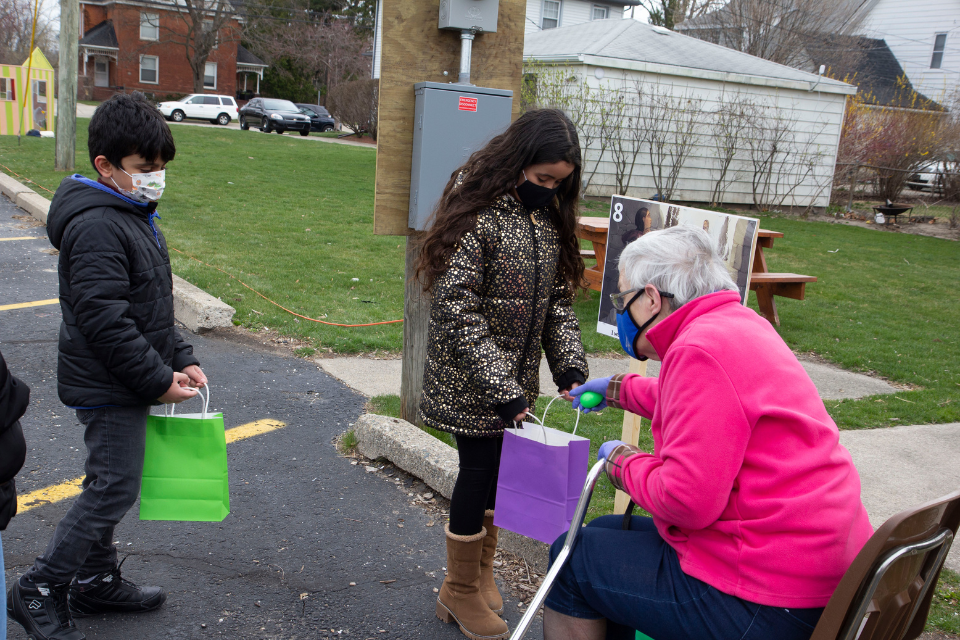
Mustard Seed ministries help churches understand what migrants have to go through and what they have to do to adjust to a new place. “Stuff that folks like me have never had to do,” Amick confesses. These personal connections can be transformative for churches and for migration policy, according to Amick. “We’re not going to change anybody’s mind about migration in the U.S. or globally,” Amick asserts, “by giving them facts or telling them these people aren’t stealing your jobs and so forth. But we might be able to make some change if people start to get in relationships with folks who are newcomers.”
When relationships have been formed, people can say, “I’m doing this. I’m standing up for this. I’m calling you, Senator, because my friend is not being treated right.” Amick insists, “I think that’s the way change happens both in our hearts and in the world. I believe in advocacy, but I think policy changes will only be made if the heart gets changed first.”
Into the Future
UMCOR moves into a new quadrennium at a time when The United Methodist Church faces stress and strain. At the spring meeting of the General Board of Global Ministries, General Secretary Roland Fernandes said, “The pandemic is just one of several realities from the past few years. Other realities have included resurgent racism, the ravages of climate change, turmoil within The United Methodist Church, and a dramatically increased need to collaborate and partner.
The recent General Conference approved a 52% budget reduction of the World Service Fund’s contribution to GBGM’s work. Fernandes says, “This cut is too large to not impact the scale of global mission and ministry in the long term.” He adds, “We are already identifying and living into collaborative ways of working that will help ease this big shift in funding. We are entering a new mission age.”
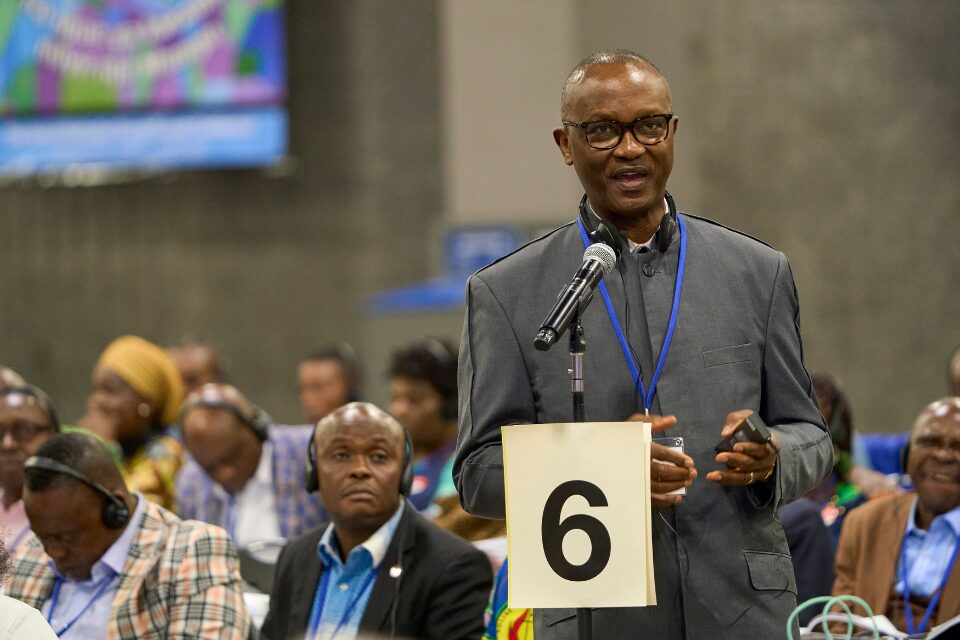
“I don’t think we have any metrics yet on the impact of disaffiliation on mission giving,” Amick remarks. He shares, “However, I visited an annual conference session last year where someone approached me and said, ‘Our church is going to disaffiliate, but can we still give to UMCOR? We think it’s a wonderful thing.’ I find that hopeful.” Regarding grants to new programs, Amick suggests, “UMCOR and GBGM’s relationship with other Methodist bodies that are just forming will have to take some time to develop, is my guess.”
Amick expresses excitement about General Conference actions on regionalization. “Regionalization will move all of us toward a more decolonized view and way of operating as a church,” he says. He urges everyone to remember that “when we are looking out on the world of Methodism, not everyone is as progressive as the United States.” Amick is convinced that UMCOR and GBGM will “find ways of relating to other Methodist bodies and parts of The United Methodist Church that find some of the things that came down at General Compass to be challenging to their sense of being.” Further, UMCOR will “come behind and support United Methodist presence in these places.”
Staying Faithful
United Methodists in this state — Detroit, West Michigan, and now Michigan conferences — have been standard bearers in UMCOR giving for many decades. How can they remain strong?
“Well, I think that all of us, in general agencies and local churches, must examine both ourselves and the core principles of mission. We all must ask, ‘Why are we doing this?’” Amick continued, “Are we helping people, or are we working alongside them? Are we doing things for people, or are we doing things with people? Are we trying to get people to behave a certain way or do certain things, like come to our church?”
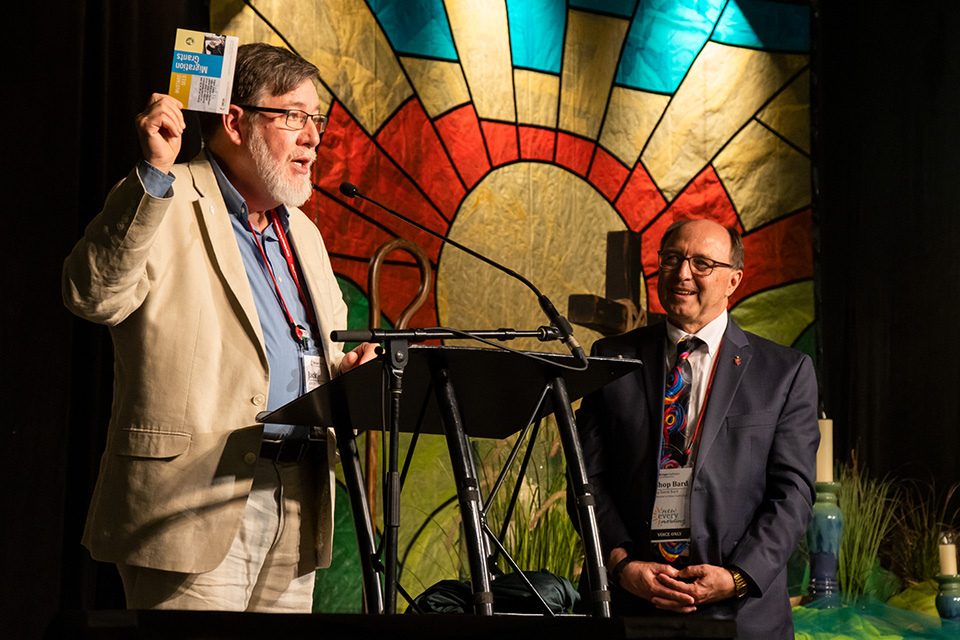
The UMCOR executive believes mission is based on relationship for relationship’s sake, “seeing the presence of Christ in the other person.” What is the proper approach to mission? Amick concludes, “I think we must say, ‘Hey, I’m doing this mission so that I can learn, so that I can see, so that I can grow,’ rather than, ‘I’m doing mission to fix things.’”
Calling it “very midwestern to want to rescue things,” Jack Amick encourages individuals and churches to examine their instincts carefully. “We have this attitude that we are pioneers, and our job is to fix stuff and bring our good abundance and give it to somebody else to help them,” he explains. “But whenever we start to rush to where bad stuff is happening, we have to slow down and remember that rescue can harm, not help.”
He counsels all in mission to “Listen more to find out who people are and what people need.”
Note: These previously published articles describe how Michigan congregations have done ministry, thanks to financial support from Mustard Seed Grants:
Five Michigan churches receive UMCOR grants
Finding family in the heart of Dearborn
Warren: First UMC sews for good
Troy: Big Beaver delivers new starts
Michigan churches engage in migration ministry
Last Updated on July 2, 2024

